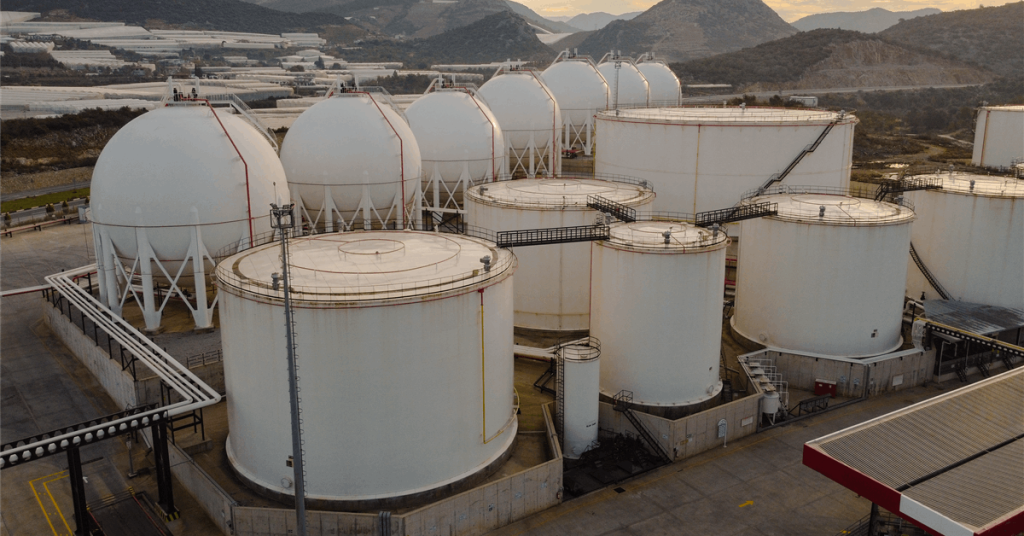Baker Hughes said it was awarded a contract by engineering company Bechtel Energy Inc. to supply key liquefaction equipment for Sempra Infrastructure’s Port Arthur LNG phase 2 project in Jefferson County, Texas.
Building upon the technology solutions provided for phase 1, Baker Hughes’ scope for phase 2 includes four Frame 7 turbines paired with eight centrifugal compressors across two liquefied natural gas (LNG) trains, supporting a nameplate capacity of around 13 million metric tons per annum (mtpa), the company said in a news release.
Additionally, Baker Hughes said it is set to provide two electric motor-driven compressors for the plant’s booster services.
Financial details of the contract were not disclosed.
“Building on our successful collaboration with Baker Hughes on Phase 1 of the Port Arthur LNG project, we look forward to achieving more LNG project milestones together,” Bhupesh Thakkar, general manager for Bechtel’s LNG business, said. “Baker Hughes’ technology solutions play a key role in our ability to enable the expansion of LNG capacity at Port Arthur LNG”.
“We are delighted to continue as a key technology provider to Bechtel and Sempra Infrastructure in the ongoing expansion of the U.S. Gulf Coast LNG complex,” Ganesh Ramaswamy, executive vice president of industrial and energy technology at Baker Hughes, said. “This award builds on our track record of providing efficient, reliable LNG technology solutions that strengthen the global gas value chain and support a consistent supply of energy worldwide”.
Baker Hughes said its gas technology solutions in the two phases of the project provide Sempra Infrastructure with “optimum production levels consistent with each plant’s design, as well as operational flexibility, high availability, and a lower emission footprint,” adding that the Frame 7 gas turbine is recognized for its energy efficiency, reliability, and maintainability.
Petrobras Contract
Meanwhile, Baker Hughes said it won a “significant” award from Petroleo Brasileiro SA (Petrobras) through an open tender to supply up to 50 subsea tree systems and associated services to support offshore oil and gas production across multiple fields in Brazil.
Under the agreement, Baker Hughes will manufacture Petrobras’ pre-salt standard subsea trees, as well as subsea distribution units, in-line tees and vertical connection systems, to enable safe, reliable and efficient production on the seafloor, the company said in a separate statement.
Topside control cabinets are targeted to provide monitoring and control of subsea equipment from floating production storage and offloading vessels, the company added.
Financial details of the contract were not disclosed.
The project will begin procurement and manufacturing in the third quarter, according to the statement.
“Baker Hughes has a history of innovation and operational excellence throughout our decades of collaboration with Petrobras,” Amerino Gatti, executive vice president of oilfield services and equipment for Baker Hughes, said. “This agreement opens new opportunities to accelerate growth in Brazil’s offshore energy sector, and we look forward to helping Petrobras efficiently and responsibly develop the hydrocarbon resources that power Latin America”.
The modern subsea systems will enhance recovery in established fields including Albacora, Jubarte and Barracuda-Caratinga. They will also be deployed in more recent pre-salt developments, including the Mero and Buzios fields, to optimize the production of new wells, according to the statement.
To contact the author, email rocky.teodoro@rigzone.com
Generated by readers, the comments included herein do not reflect the views and opinions of Rigzone. All comments are subject to editorial review. Off-topic, inappropriate or insulting comments will be removed.
element
var scriptTag = document.createElement(‘script’);
scriptTag.src = url;
scriptTag.async = true;
scriptTag.onload = implementationCode;
scriptTag.onreadystatechange = implementationCode;
location.appendChild(scriptTag);
};
var div = document.getElementById(‘rigzonelogo’);
div.innerHTML += ” +
‘‘ +
”;
var initJobSearch = function () {
//console.log(“call back”);
}
var addMetaPixel = function () {
if (-1 > -1 || -1 > -1) {
/*Meta Pixel Code*/
!function(f,b,e,v,n,t,s)
{if(f.fbq)return;n=f.fbq=function(){n.callMethod?
n.callMethod.apply(n,arguments):n.queue.push(arguments)};
if(!f._fbq)f._fbq=n;n.push=n;n.loaded=!0;n.version=’2.0′;
n.queue=[];t=b.createElement(e);t.async=!0;
t.src=v;s=b.getElementsByTagName(e)[0];
s.parentNode.insertBefore(t,s)}(window, document,’script’,
‘https://connect.facebook.net/en_US/fbevents.js’);
fbq(‘init’, ‘1517407191885185’);
fbq(‘track’, ‘PageView’);
/*End Meta Pixel Code*/
} else if (0 > -1 && 77 > -1)
{
/*Meta Pixel Code*/
!function(f,b,e,v,n,t,s)
{if(f.fbq)return;n=f.fbq=function(){n.callMethod?
n.callMethod.apply(n,arguments):n.queue.push(arguments)};
if(!f._fbq)f._fbq=n;n.push=n;n.loaded=!0;n.version=’2.0′;
n.queue=[];t=b.createElement(e);t.async=!0;
t.src=v;s=b.getElementsByTagName(e)[0];
s.parentNode.insertBefore(t,s)}(window, document,’script’,
‘https://connect.facebook.net/en_US/fbevents.js’);
fbq(‘init’, ‘1517407191885185’);
fbq(‘track’, ‘PageView’);
/*End Meta Pixel Code*/
}
}
// function gtmFunctionForLayout()
// {
//loadJS(“https://www.googletagmanager.com/gtag/js?id=G-K6ZDLWV6VX”, initJobSearch, document.body);
//}
// window.onload = (e => {
// setTimeout(
// function () {
// document.addEventListener(“DOMContentLoaded”, function () {
// // Select all anchor elements with class ‘ui-tabs-anchor’
// const anchors = document.querySelectorAll(‘a .ui-tabs-anchor’);
// // Loop through each anchor and remove the role attribute if it is set to “presentation”
// anchors.forEach(anchor => {
// if (anchor.getAttribute(‘role’) === ‘presentation’) {
// anchor.removeAttribute(‘role’);
// }
// });
// });
// }
// , 200);
//});

